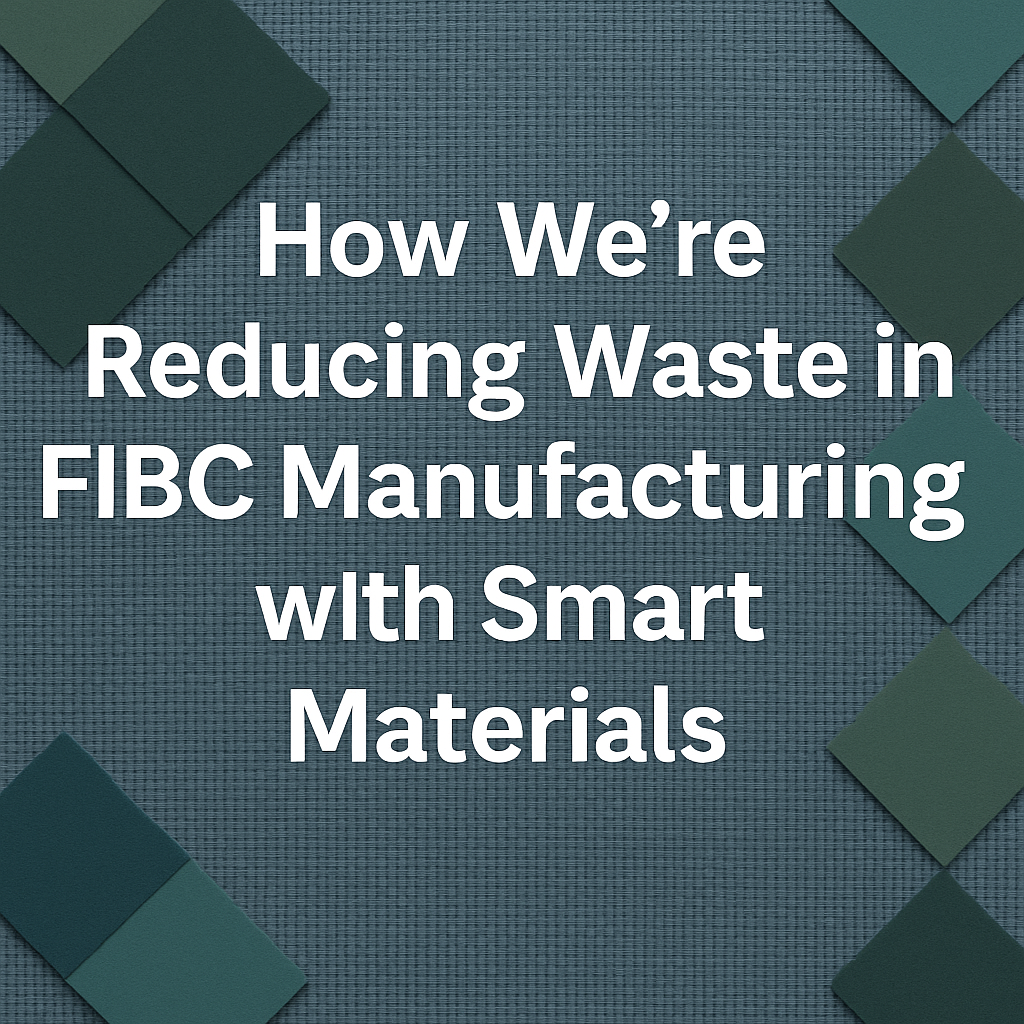At Disha Jute, we believe sustainability is more than a trend—it’s our responsibility. We’re redefining how Flexible Intermediate Bulk Containers (FIBCs)—those big, tough bags that power global supply chains—are made. By using smarter materials and cleaner processes, we’re cutting waste, boosting efficiency, and paving the way for a greener future.
Why Traditional FIBC Manufacturing Needs a Change
FIBCs are vital for industries like agriculture, construction, chemicals, and food. But traditional manufacturing methods create waste in ways you might not expect:
- Fabric scraps from imprecise cutting
- Defective bags that don’t make the cut
- Energy-heavy production processes
- Single-use bags piling up in landfills
These problems don’t just harm the environment—they cost businesses time and money. We knew there had to be a better way.
Our Solution: Smarter Materials for Less Waste
We’re using innovative materials that work harder, last longer, and leave a lighter footprint. Here’s what’s in our toolkit:
- Recycled polypropylene: Reduces the need for new plastic.
- Biodegradable polymers: Break down naturally after use.
- Static-dissipative fabrics: Make Type D bags safer for flammable materials.
- Moisture-resistant liners: Keep contents clean and bags reusable.
These materials aren’t just upgrades—they’re steps toward a more sustainable lifecycle for every bag.
How We’re Cleaning Up the Manufacturing Process
We’re not just talking about sustainability; we’re making it happen. Here’s how:
- Precision Cutting, Less Waste
Our new CAD-guided cutting systems map out fabric with pinpoint accuracy, leaving almost no scraps. More bags, less waste—simple. - Durable Bags That Last
Our heavy-duty fabrics resist tears, weather, and chemicals, so fewer bags fail or need replacing. Stronger bags mean less waste and fewer headaches. - Built for Reuse and Recycling
Our FIBCs are designed for multiple uses, with liners and spouts that make unloading clean and easy. Plus, we’re testing biodegradable coatings to ensure bags break down safely when their job is done. - Tracking Waste Smarter
IoT sensors in our facilities monitor waste in real time, helping us recycle more and waste less. Any leftover materials? They go to recycling centers to become something new. - Greener Energy Use
Solar-powered machines and automated systems cut energy use while boosting precision. Less electricity, fewer emissions, better results.
Teaming Up for a Bigger Impact
Sustainability works best when we collaborate. We’re partnering with:
- Suppliers of recycled materials
- Local recycling centers to repurpose byproducts
- Industry innovators exploring AI-driven waste solutions
Together, we’re creating a supply chain that prioritizes the planet.
Why This Matters for You
Choosing our eco-friendly FIBCs means:
- Lower costs for packaging and waste management
- Easier compliance with environmental regulations
- A greener reputation that customers and investors value
- A step toward a circular economy where waste is history
We’re here to help your business stay strong, safe, and sustainable.
What’s Next for Disha Jute?
We’re always pushing forward—testing cutting-edge biodegradable materials, exploring AI to optimize production, and imagining the future of sustainable packaging. Our goal? To make FIBCs smarter, safer, and greener than ever.
Let’s Make a Difference Together
Ready to switch to sustainable FIBCs that don’t compromise on quality? At Disha Jute, we combine innovative materials with ethical practices to deliver bulk bags that work for your business and the planet.
Reach out today or visit www.dishajute.com to explore our range. Let’s cut waste, boost efficiency, and build a cleaner future—one bag at a time.

